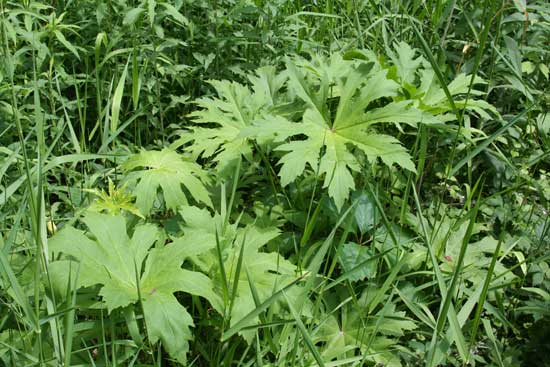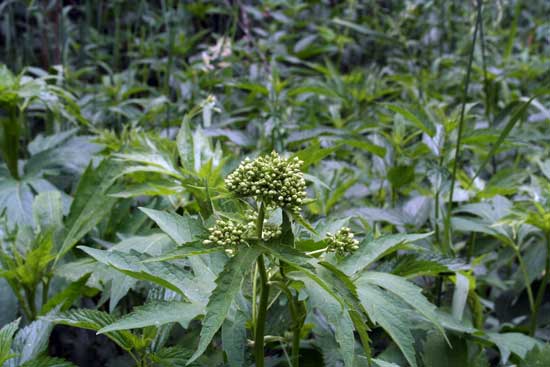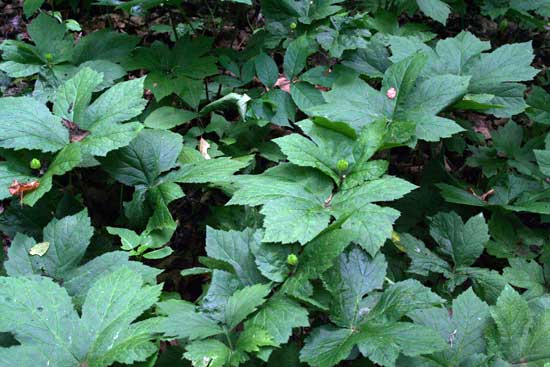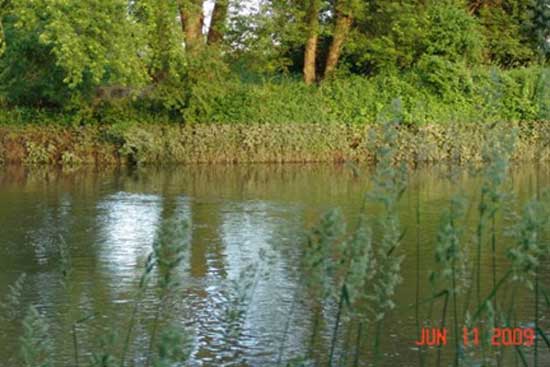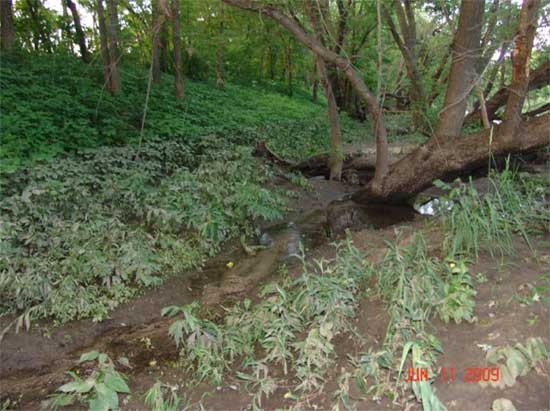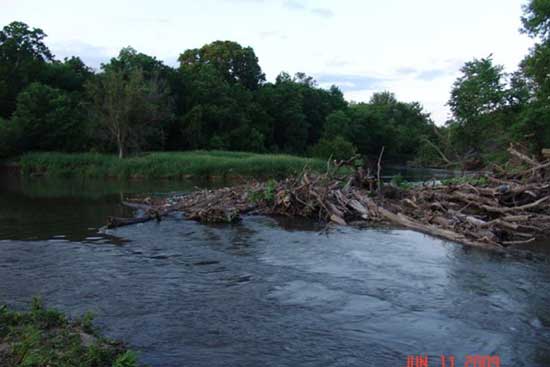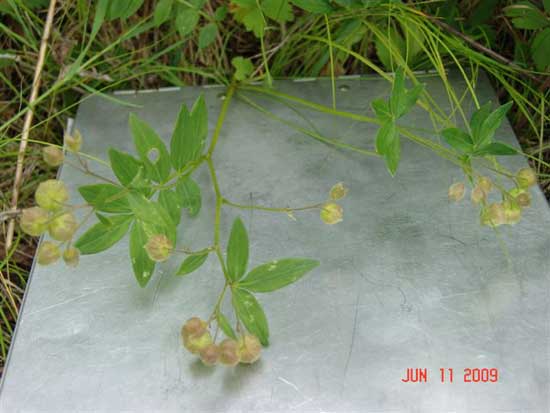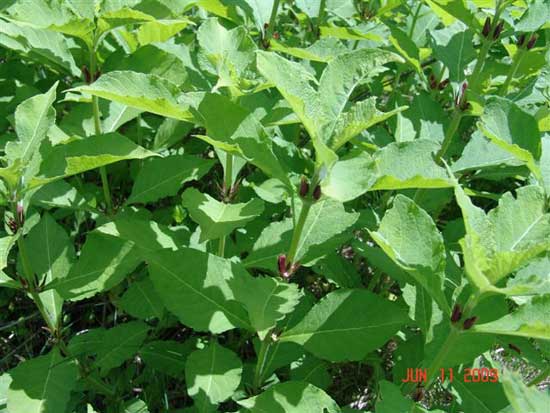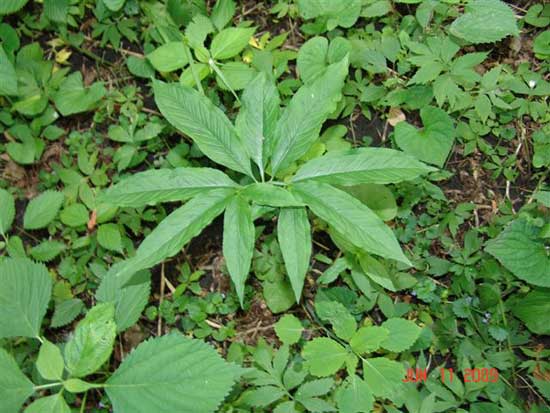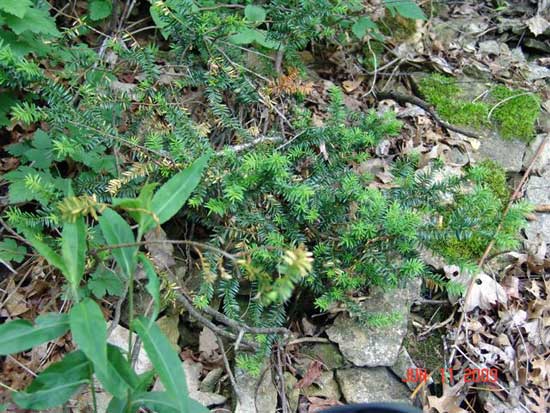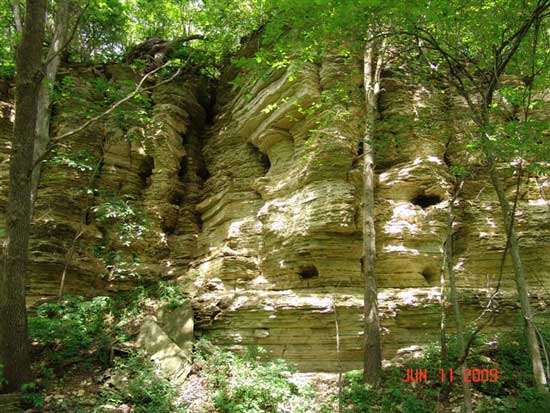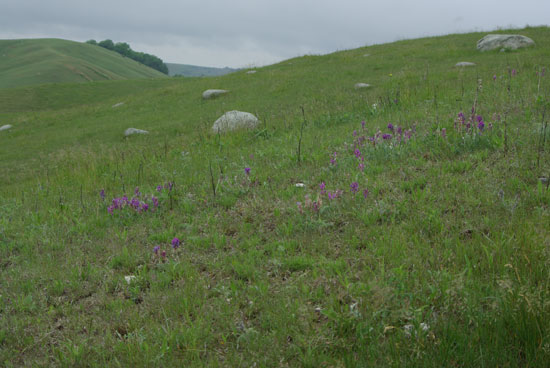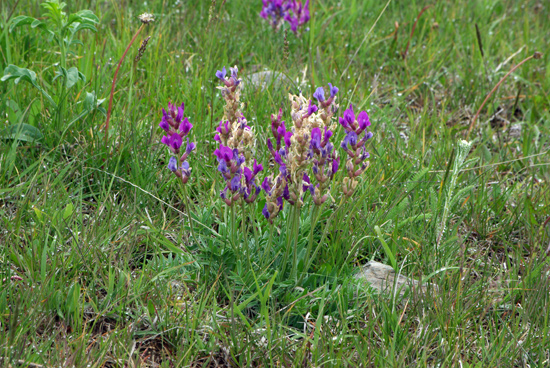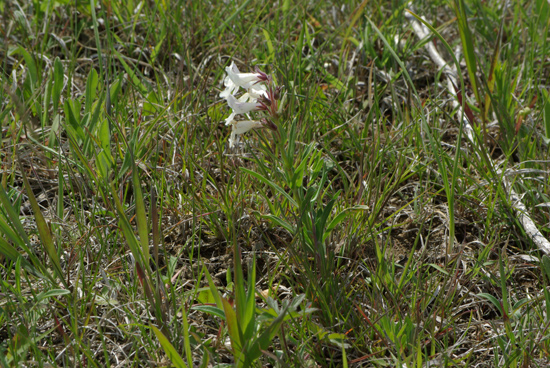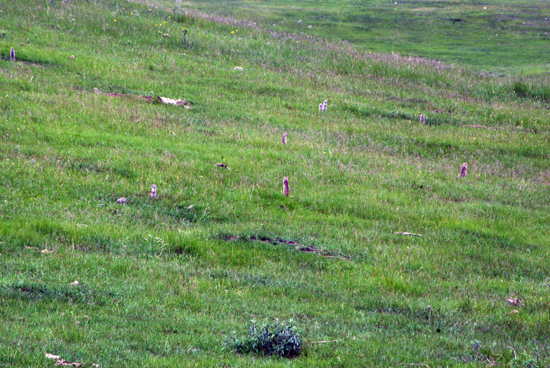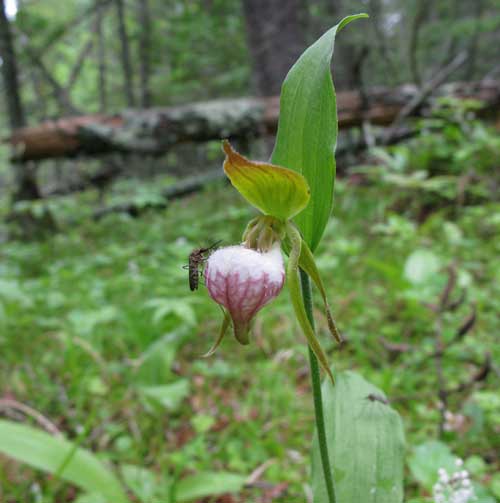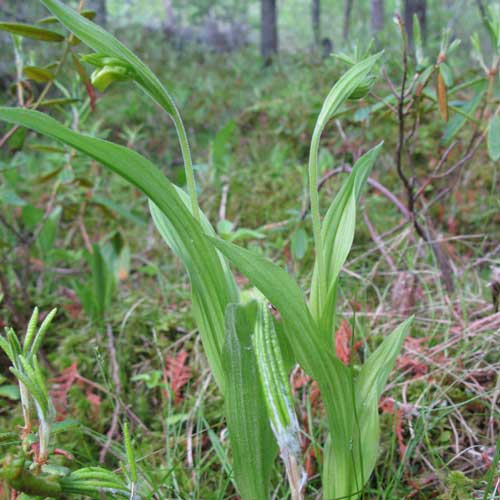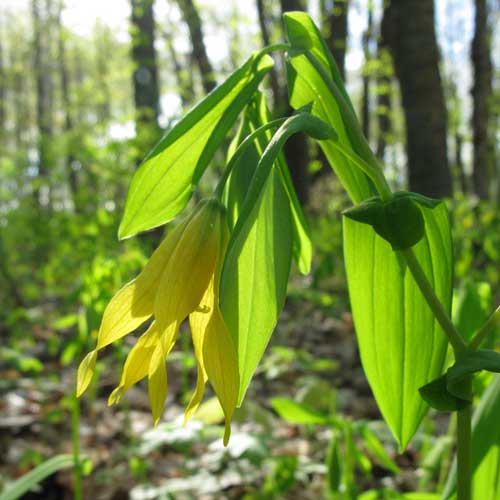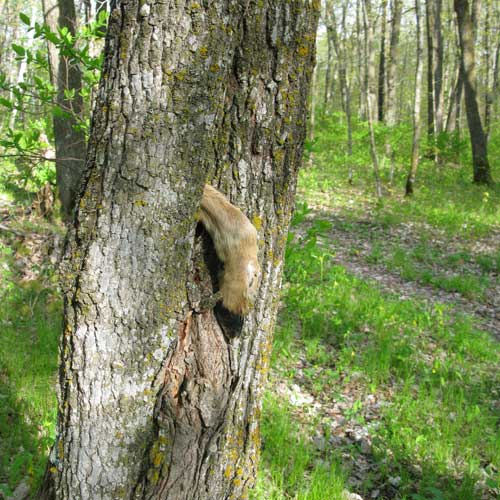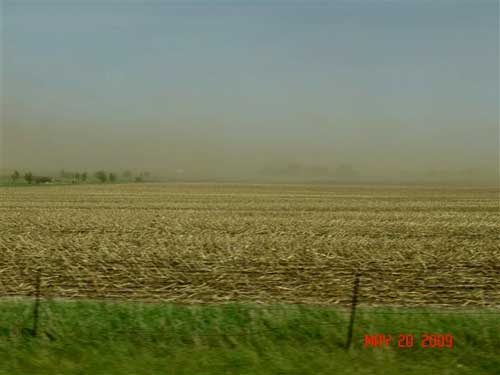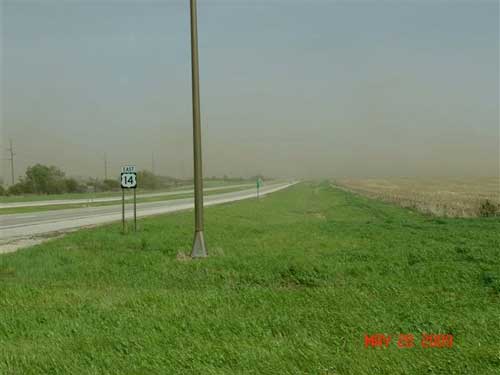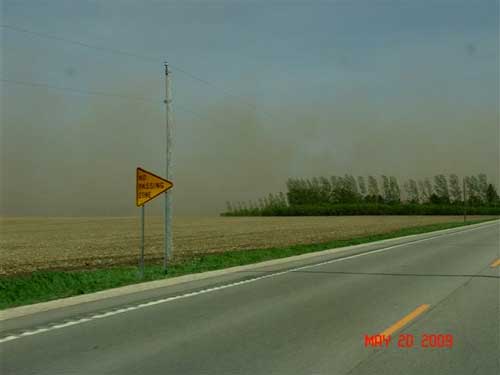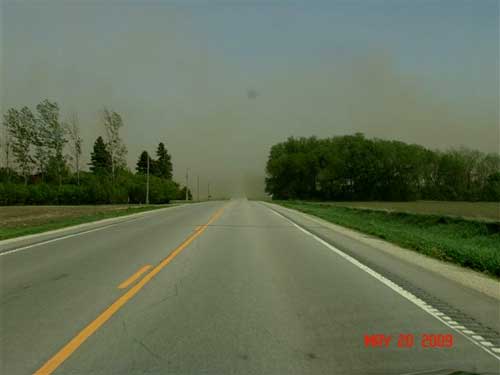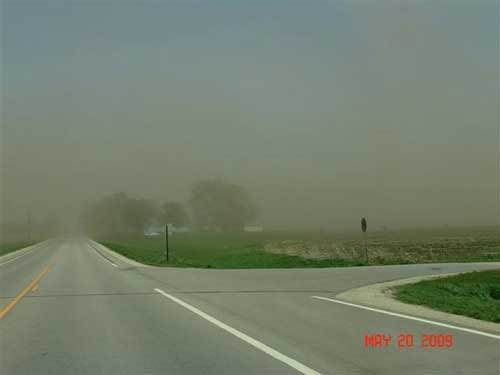
|
Derek Anderson,
Plant Ecologist/
Botanist
|
"...On June 17th, I spent the day in a block of forest in Dodge County. I discovered a large patch of glade mallow (Napaea dioica)
along the Middle Fork Zumbro River. Certainly, a nice find to complement the green dragon (Arisaema dracontium)
and butternut (Juglans cinerea)
I had discovered earlier. Off in the distance, I heard the rumbling of thunder. I was well over a mile from my vehicle and I knew that it would be in my best interest to head out of the site. As I walked toward the car through the maple-basswood forest, I encountered patches of may apple (Podophyllum peltatum)
, enchanter's nightshade (Circaea lutetiana)
, wild ginger (Asarum canadensis)
, blue cohosh (Caulophyllum thalictroides)
, wild geranium (Geranium maculatum)
, and waterleaf (Hydrophyllum virginianum)
. I thought to myself, "it would be nice to find something rare." I started down a gentle slope and much to my delight came across a patch of golden-seal (Hydrastis canadensis)
! Was it a moment of clairvoyance? Was it luck? I don't know, but either way it was a great way to end the day. Later that evening, the storms I heard off in the distance grew quite strong and generated several tornadoes in the area."

|
Carol Hall,
Herpetologist
|
6/15/2009 3:16 PM.
"Four inches of rain fell in the Austin area in early June, causing flooding of turtle habitat along local rivers. Water quality deteriorated noticeably and a thick layer of silt coated vegetation and turtle nest sites after the water receded. Prolonged flooding can cause high nest mortality "

|
Carol Hall,
Herpetologist
|
Carol has been doing double duty as a herpetologist and botanist in Dodge County this spring. On June 11 she came across several unusual plants−including the rare plant green dragon−while looking for turtles along tributaries of the Zumbro River. She also found a sandstone cliff with dozens of interesting looking crevices and small caves. It is likely that mammalogist Gerda Nordquist will be visiting the cliff later to investigate the holes…

|
Fred Harris,
Plant Ecologist/
Botanist
|
June 10, 2009. "
I completed my last surveys of native plant communities in Lincoln County in early June, including a beautiful, recent addition to the Nature Conservancy's Hole-in-the-Mountain Preserve. Early June plants in flower included Lambert's locoweed (Oxytropis lambertii
var. lambertii
), white beard tongue (Penstemon albidus
), prairie ragwort (Senecio plattensis
), and the rare small-leaved pussytoes (Antennaria parvifolia
). Near the preserve, I also spotted a colony of Richardson's ground squirrels."

|
Erika Rowe,
Plant Ecologist/
Botanist
|
June 9, 2009
"Spring is slowly loosening its grip-finally. Ram's head orchids (Cypripedium arietinum)
and small yellow lady's slippers (Cypripedium calceolus
var. parviflorum)
just beginning to open in a cedar swamp. Carpets of large-flowered bellwort (Uvularia grandiflora)
are almost done blooming in the hardwood forests, and a tree sprouting a new furry appendage? Hmmmm."

|
Steve Stucker,
Ornithologist
|
June 4, 2009 3:05 PM.
"Mower County is the place to be. I spent the morning at Lake Louise State Park. Found Lark Sparrows (new county record), Kentucky Warbler, Hooded Warbler, plus late (returning?) migrant Yellow-bellied and Alder Flycatchers and a Connecticut Warbler."

|
Derek Anderson,
Plant Ecologist/
Botanist
|
In early June MCBS plant ecologist Derek Anderson found several new populations of the rare plant green dragon
(Arisaema dracontium) along the Cedar River and Rose Creek in Mower County and along Dodge Center Creek and the Zumbro River in Dodge County. The green dragon is restricted in Minnesota to riparian habitats in the southeastern counties and is vulnerable to habitat destruction. A side note: southern Minnesota has been abnormally dry this spring. On May 19 Derek was caught up in several sky-blackening dust storms and sent us images of the event.

|
Ethan Perry, Plant Ecologist/
Botanist
|
May 28.
"I visited an old growth sugar maple-basswood on an island in a large conifer swamp in northern Cass County, half owned by the state and half by the Chippewa National Forest. The DNR intends to thin its portion of the island in a couple years. The soil appears to be free of invasive earthworms and maintains its natural structure. The deep water in the foreground is all that has prevented them crossing from uplands just 50 meters away. It seems only a matter of time before some worms or their eggs hitch a ride through the water on an ATV."

|
Michael Lee, Plant Ecologist/
Botanist
|
In late May, Michael Lee and Lynden Gerdes relocated one of Minnesota's historic populations of weak
Arctic sedge (
Carex supina var.
spaniocarpa) on a cliff near South Fowl Lake, 120 years after it had last been seen at this site in the Border Lakes region. This was one of two historic populations for the species in Minnesota.
This circumboreal sedge was historically found on steep cliff-faces in three southern populations in Minnesota and Ontario, far disjunct from its main arctic range. These populations persist likely due to the microhabitat provided by steep north-facing cliffs bordering deep cold lakes.
<
|

|
Carol Hall,
Herpetologist
|
May 20, 2009. Carol came across a dust storm in Dodge County.

|
Robert Dana, Prairie Ecologist/
Entomologist
|
May 18: Butterfly and moth surveys are now in full swing in the Border Lakes region. Robert Dana and Kyle Johnson have been scouring bogs and swamps in the region for the
Taiga Alpine (Erebia mancinus), the holy grail of peatland butterflies.

|
Carol Hall,
Herpetologist
|
On April 22 (Earth Day!)
Carol Hall and Jeff LeClere found a new location for wood turtles
(Glyptemys insculpta) in Minnesota, in Mower County.
Wood turtles are listed as threatened in Minnesota because of loss of habitat, collection for the pet trade, and nest predation. MCBS is working with other biologists in Minnesota to survey rivers for wood turtles and establish guidelines for conservation.


